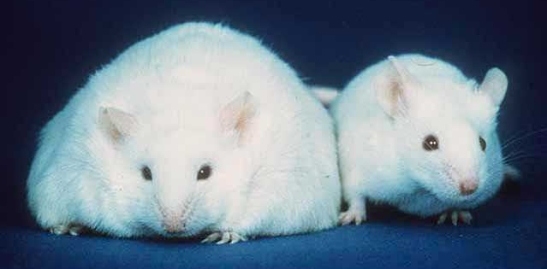Leptin, insulin, triglycerides, and obesity
While insulin is becoming more recognised as a major player in metabolic health, there are a number of other hormones that deserve attention. One of these is leptin. Leptin is produced by adipose (fat) tissues in the periphery into the blood stream. Part of its role is to indicate to the brain that we have sufficient fat stores to buffer against a reasonable period of starvation. This means that any extra energy we now have can be released as enjoyable actions not needed for survival, or “play”.
This can be illustrated by looking at Lions in the wild. When the wildebeest migrate through their territory, the lions have plenty of food and been observed to be lolling around relaxed and happy, with their cubs playing.

However, once the herds have moved on, the lions cannot follow as they cannot leave their territory. Now the lions become hungry and hunker down, only expending energy for hunting.
The actions of leptin were also demonstrated in these mice.

These mice are brothers. The normal sized one is genetically normal, but the obese one has been modified to not produce leptin. They are fed an identical amount of mouse appropriate food. The difference is, the obese mouse sits by the food and does not move…..unless you move the food. After giving the obese mouse leptin injections, it started moving more and slowly lost the excess weight. This shows the importance of leptin in controlling appetite and energy expenditure.
Humans also have leptin for the same purposes as mice and lions – to control appetite and energy expenditure. When leptin’s actions were first realised, it was thought that obese humans were leptin deficient, and that giving leptin injections would aid obesity. Unfortunately, this experiment failed. Humans do not become obese due to leptin deficiency, it occurs due to leptin resistance.
Leptin has to cross the Blood Brain Barrier in order to reach the hypothalamus in the brain so it can exert its effects. If this does not occur (peripheral resistance), or if the central leptin receptors fail to respond to leptin’s actions (central resistance) then leptin will not down-regulate appetite, or increase our desire to play, so we keep eating and stop moving.
If you are leptin resistant, and trying to keep up with the public health efforts that encourage us to “move more and eat less”, all that will happen is that you get hungry (and grumpy) and retreat, exhausted, to the couch to not move for the rest of the evening after you have been to the gym. This is your body hunkering down, like a starving lion. Your brain thinks your body is starving, so sends out constant messages to you to find high energy density foods without moving too far from a place of safety. Maybe this is why the post-gym chocolate muffin looks so good?
High insulin, and now high triglyceride, levels are known to cause leptin resistance. The Western environment, including diet, encourages all of us to become insulin resistant. High energy, but low nutritional density foods, disrupted sleep, stress, increased pollution, and low UV light exposure all increase insulin levels, which in turn, causes leptin resistance.
Anything that reduces insulin levels, including caloric restriction and increased physical activity, will help more leptin reach the brain. However, for many people, eating less, but moving more can reinforce the actions of the leptin deficiency – the brain becomes even more convinced that you are in the middle of a famine and your “hunting” is unsuccessful, so it must conserve even more energy. This makes it even more difficult to become physically active. Eventually, your “willpower” to exercise will not be as strong as your brain’s “won’t power”. We don’t yet how much insulin resistance or hyperinsulinaemia, is needed to cause leptin resistance. The recent study that shows that triglyceride levels are also implicated with leptin resistance was mostly done with mice.1
What we do know is that health organizations recommend that triglyceride levels should be kept below 1.7 mmol/L, (150mg/dL) but some studies suggests that even lower levels (< 1 mmol/L or 90mg/dL) may have even greater benefits.
Leptin is only one part of the appetite equation. Other players include (but are not limited to) protein and fat content of the meal, and how much volume is in the stomach. This is one reason why following a well-formulated carbohydrate restricted diet can be more successful for weight loss compared to a caloric restricted low fat diet. It may also explain why people can lose weight when they restrict carbs, without going to the gym.
Carbohydrate consumption increases both insulin and triglyceride production. If you restrict the amount of carbs consumed, then less insulin is produced, and fewer triglycerides. This helps to manage the leptin resistance. If more leptin reaches the brain, then the body will naturally feel “full” with slightly fewer calories. But wait….there’s more…..with more leptin in the brain, then the desire to “hibernate” on the couch in the evening watching TV, will also diminish. Maybe not by much, but perhaps more housework, or hobbies might happen, which consumes slightly more energy. Little by little, these efforts all add up to big health changes.
- Banks W.A., Farr S.A., Salameh T.S., et al. Triglycerides cross the blood–brain barrier and induce central leptin and insulin receptor resistance. International Journal of Obesity (2005). 2018;42(3):391-7.


Brilliant stuff 😊
Regards, Anthony Power R Nutr Registered Nutritionist http://www.powernutrition.com.au
>
LikeLike
Loving the information on this web site, you have done great job on the content.
LikeLike